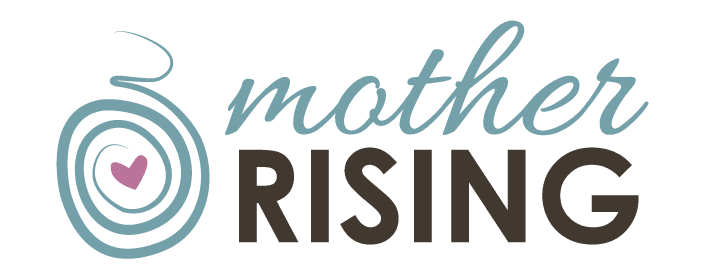This is a list of holistic postpartum mental health resources for new moms that I’ve compiled over the years for my childbirth class students. Postpartum mental health is so important, and yet, the US is so bad at it – not the moms, it’s the “system”. The typical mental health services offered to new parents is a screening at the six week postpartum visit, and maybe a referral out if needed. Unfortunately, women find they need muster the energy to advocate for themselves at a moment when they have the least ability to do so.
Nevertheless, this information is the starting point in your postpartum mental health journey. I hope it points you in the right direction, eliminating some of the ground work to get you started.
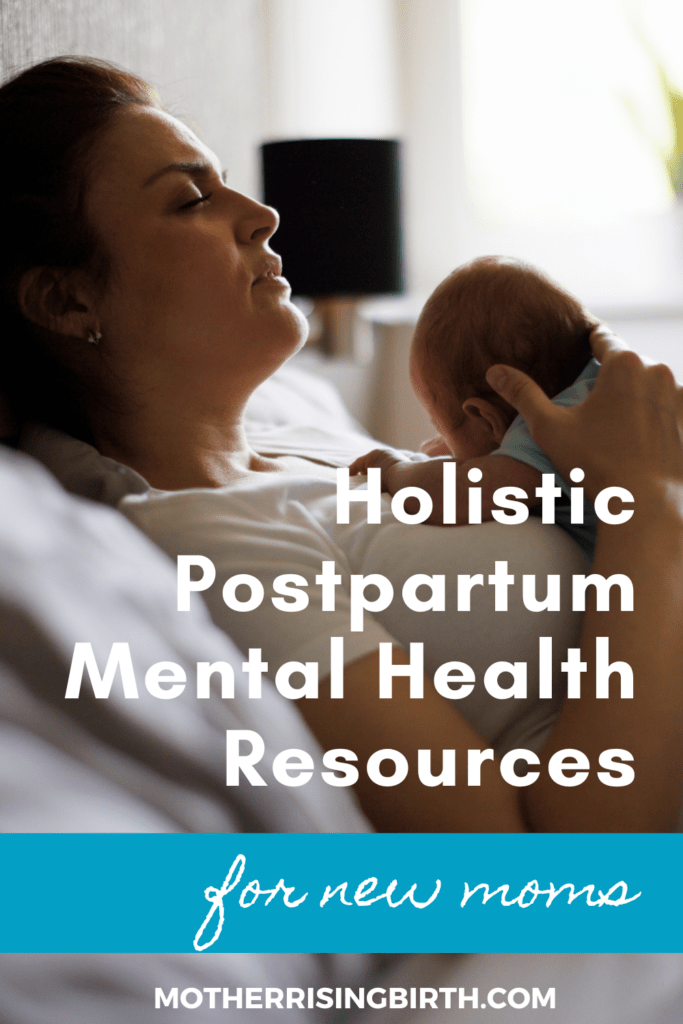
On This Page
12 Minute Read
↓What is Postpartum Depression?
↓Baby Blues vs. Postpartum Depression
↓How Common is Postpartum Depression?
↓Can Partners Experience Postpartum Depression Too?
↓How Can I Assess My Risk of PPD?
↓List of Holistic Postpartum Mental Health Resources
↓Postpartum Depression Handouts
↓People to See for Postpartum Mental Health Resources
↓Postpartum Depression Solutions, By Mouth
↓Move the Body for Postpartum Mental Health
↓My Favorite Postpartum Mental Health Books
Postpartum FAQs
What is Postpartum Depression?
Postpartum depression (PPD) is a type of depression that develops during the first year after birth, usually in the first few months. Women find their PPD experience interferes with their ability to care for themselves and/or their newborn. Symptoms of postpartum depression may include:
- Trouble sleeping
- Feeling sad
- Crying a lot for no reason
- Feeling overwhelmed
- Racing thoughts
- Trouble concentrating
- Feeling disconnected from life, partner, and/or baby
Use one of the postpartum risk assessments below for a full list of symptoms.

What’s the Difference Between Baby Blues vs. Postpartum Depression?
Just to be clear, baby blues is not postpartum depression. Baby blues happens during the first month after birth and is caused by the physical, hormonal, and emotional transition from pregnancy to postpartum. Women had humans inside their bodies, and now they don’t – that’s a big shift! Crying and laughing within the same minute, and feeling weird like “you’re not yourself” are good examples of baby blues. This wide range of emotions – big ups and big downs – during the first few weeks is baby blues and very normal. No worries, this will go away. Have patience and you will level out pretty quickly.

How Common is Postpartum Depression?
Postpartum depression, or the better term postpartum mood disorders, is incredibly common. One study says 1 in 7 women will experience some varying degree of this mental health disorder, whether it’s postpartum depression, postpartum anxiety, or postpartum OCD. Another study says 1 in 10 women will experience PPD. There was even a PRAMS study in 2016 that said 1 in 4 Floridian women experienced a PPD! No matter what numbers you use, the point is that it’s incredibly common and impacting more women than we think.
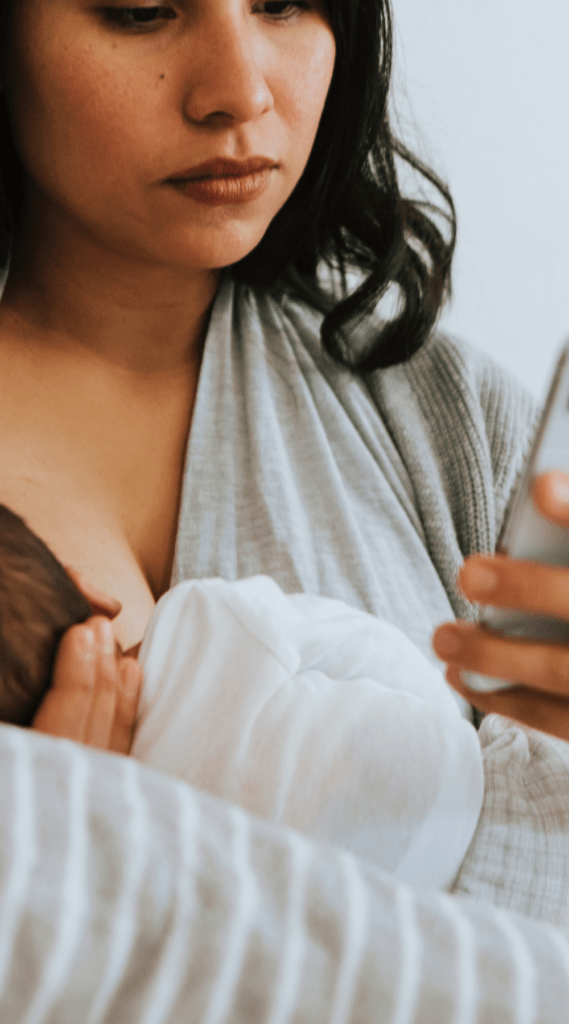
Can Partners Experience Postpartum Depression Too?
Yes, partners can experience postpartum depression as well. One study revealed 1 in 10 fathers experienced postpartum anxiety.
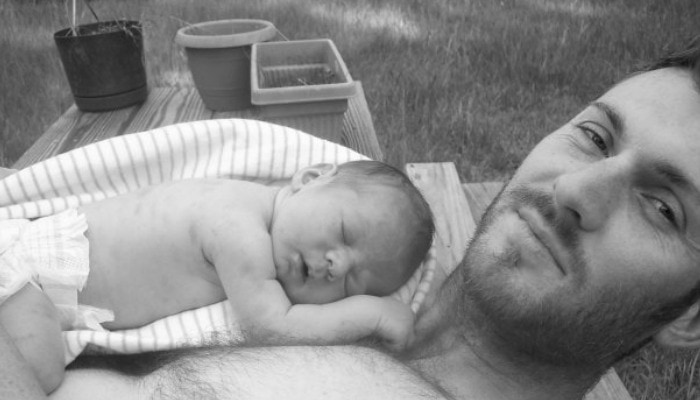
How to Assess the Risk for PPD
Many parents wonder the likelihood of experiencing a postpartum mood disorder. Here are factors that increase a woman’s risk for developing PPD.
1) History of Depression
If you have a history of depression, or experienced depression during pregnancy, this increases the risk for postpartum depression. If this describes you, get a plan in place to care for yourself during this big transition. More on this below.
2) Anemia
Anemia, or not having enough healthy red blood cells, increases the risk of postpartum depression. If you’ve been dealing with anemia in pregnancy, or even prior to that, be extra aware of postpartum mood disorders and have a plan in place BEFORE you give birth.
3) Lack of Sleep
Shockingly, there is an association between lack of sleep in new parents and postpartum depression. (That was me being sarcastic.) This makes so much sense to me! Nobody feels right when they’re not getting good sleep every day. Sleep is so important for our mental and physical health.
4) Pitocin @ Birth
The medical community was surprised to find a link between Pitocin and postpartum depression. They’re not saying Pitocin causes PPD, but there’s some sort of association between the two. Interesting, right? Despite the medical community being surprised, new parents were not. Read the linked post above for all the details.
List of Holistic Postpartum Mental Health Resources
Here is a list of my best resources, tools, and ideas for holistic postpartum mental health and healing.
Postpartum Depression Handouts
Here are the two postpartum depression handouts I give new parents:
1) Edinburgh Postnatal Depression Scale
The Edinburgh Postnatal Depression Scale is my absolute favorite screening tool for postpartum mood disorders. It’s short, sweet, and to the point. It’s a common PPD screening tool in the US, believe it or not. Well done, UK!
2) Postpartum Progress Communication Tool
Postpartum Progress is a wonderful resource for all things postpartum mood disorders. There’s so much good information on there – click around! My favorite resource on postpartum progress is their new mom mental health checklist. This is a discussion tool for speaking with a loved one, care provider, therapist, friend, etc. It can be so difficult to communicate your experience and needs when you feel so poor – this tool makes it easy. Print it out and/or bookmark in case you want to use it later!

People to See for Postpartum Mental Health Resources
1) Talk with Loved Ones
Speaking of communicating, the first step in getting help for a postpartum mood disorder is usually talking with a friend, family member, and/or partner. Choose someone you feel safe with, and won’t dismiss what you’re experiencing. Unfortunately, there are still those that believe “it’s all in your head” and the cure is to “pick yourself up by your bootstraps”. Not helpful! Avoid these people! Find someone that “gets it” and will champion you every step of the way – maybe another new parent, a friend, or a spouse.

2) Visit Your Care Provider
An easy go-to when parents think they’re experiencing postpartum depression is their care provider – a midwife, obstetrician, or primary doctor. Bring one of the screening/new mom communication tools mentioned above, but also a friend or partner. Doing this kind of thing by yourself is hard. Maybe they come in the room with you, maybe they don’t, but either way it’s reassuring to feel their support.
3) See a Therapist
Next, talk to a therapist that has experience helping new parents with postpartum mood disorders. Believe it or not, these specialized therapists are out there! My go-to tool to find a therapist near me is Psychology Today. However, ask local doulas as well. Doulas are an excellent way to get connected to postpartum resources in your community. To find a doula, try Doula Match.Net.
4) Hire a Postpartum Doula
Obviously and unfortunately, there is a link between lack of sleep and postpartum depression. Enter the postpartum doula! These professionals are a breath of fresh air, and a relief to new parents. Not only will they help new moms get some rest, they also can help with sibling adjustment, baby wearing, breastfeeding, newborn care, community referrals, meal preparation, light housework, and more! Sometimes out of town family members gift a new parents with a postpartum doula, or pool together for a baby shower gift. This is probably one of the best gifts you could give a new parent. You can find postpartum doulas on Doula Match.Net too. Get you one!
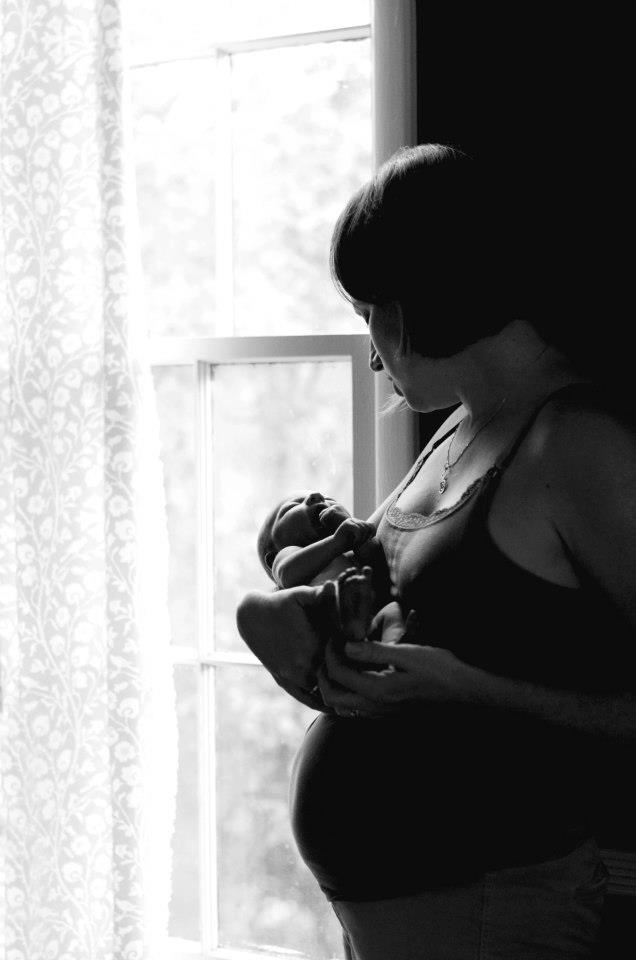
5) Find Other New Parents
Other people to consider for postpartum healing are another group of helpful people in your community – other new parents. Since covid, I have to say it has been difficult for new parents to connect with each other. However, here are my best ideas for finding parent friends.
- Childbirth class
- Breastfeeding class
- Breastfeeding support group
- Postpartum support group or meetups
- MOPS
(I’d love to brainstorm more ideas for connecting with other new parents. Drop a comment if you have some good ideas!)
6) Join a Facebook Group
Sometimes parents can find a good online support group, specifically geared towards postpartum wellness. There’s one for where I live! Do a search on Facebook and see what you find. If you can’t find a local group, join a larger postpartum group and give it a whirl. It’s always a relief to see other parents experiencing similar things as you. You’re not alone!
Postpartum Depression Solutions, By Mouth
The following are holistic postpartum mental health resources that parents can use, take, or eliminate by mouth.
Explore Anti-Depressants
I am a believer in anti-depressants and encourage mothers to speak with their care providers about the benefits and risks of these medications after having a baby. Not every woman experiencing postpartum depression will need an anti-depressant, but some will. I have taken anti-depressants during difficult times in my life, and would consider it again if needed moving forward. You would be surprised how many people take them!!
Eat Wholesome Foods
It’s completely understandable if you prefer to use non-pharmacological methods to assist with postpartum depression. Many parents find it helpful to focus on eating wholesome foods to aid in physical recovery, but to just generally feel better too. Generally speaking, any time we eat more non-processed, whole foods we’re going to feel better. Here’s a great resource about what to eat during postpartum.
Limit Caffeine
Caffeine is a stimulant, and 100% aggravates the nervous system, therefore aggravating postpartum anxiety. Ironically, sleep deprivation makes parents reach for more coffee, and more coffee puts our nervous system into overload, but also makes sleep more difficult. Around and around it goes – a vicious cycle! If a new parent is struggling with postpartum anxiety, my advice is to cut caffeine out completely, or limit the frequency and time – preferably to one cup only in the morning. As someone that has a lot of experience with anxiety, this is a solution worth trying. Check out this post I wrote for a wonderful list of natural solutions for anxiety.
Consider Placenta Encapsulation
The biggest reason new parents eat their placenta postpartum (aka placenta encapsulation) is to avoid postpartum depression. One of the ways I serve my postpartum community is to offer placenta encapsulation services to new parents. I will say, there’s not a lot of hard evidence to support this practice, but there’s a lot of anecdotal evidence that does. In my experience, parents rave about their placenta pills. Even if it’s just a placebo affect, wouldn’t it be worth looking into? Something to think about, for sure!
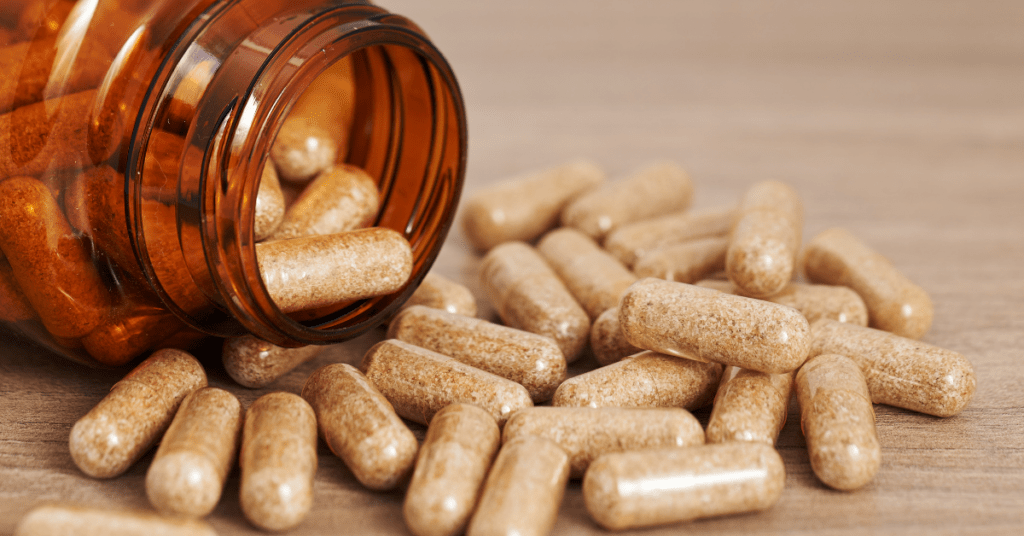
Breath Work
Mindfulness is the practice of training the mind to focus on the right now, instead of wandering aka what I call squirrel brain. One of the best and easiest ways to be mindful is through breath work, or bringing our focus and attention to the breath. Breath work is a whole thing, but the simplest way is through breath awareness. Breath awareness is when we bring our attention and awareness to the breath – not changing it at all – but noticing the inhales, and exhales. It’s simple, but because of our squirrel brains, can sometimes be challenging. Incorporating breath work into a daily routine calms the nervous system, which is like taking a daily vitamin for the brain. Try out breath awareness over here!

Move the Body for Better Postpartum Mental Health
Of course, moving the body helps the mind, body, and spirit. However, new parents often feel limited when recovering from a demanding labor and delivery, but also simply because of their depression. Depression makes it hard to just get off the couch. Here are a couple of ways new parents can realistically and gently exercise during the postpartum period.

Go for a Walk
Walking is a gentle way to ease the body back to normalcy, doesn’t require a gym or equipment, and is typically a win for baby as well. Babies love being outside! Use a stroller, a baby carrier, or leave baby with a partner, and go for a 5 minute walk every day. Aim to build the habit of walking, not necessarily a “workout”. Set the bar low for a better chance of executing the task.
Try Yoga
Yoga is another gentle way to move the body, that doesn’t require a gym or expensive equipment. Use YouTube or another streaming platform, and search for “gentle yoga” or “postpartum yoga”. Again, the aim here is to create the habit to move the body. Aim for 5 minutes, or even 2! Figure out what is most realistic, and start there. The book How to Keep House While Drowning down below has a ton of similar advice for taking care of oneself when depressed. Check it out!
My Favorite Postpartum Mental Health Books
The following book is not necessarily a postpartum mental health resource, but it should be. “How to Keep House While Drowning” helps us understand a few basic principles like calling chores “care tasks” and explaining how these tasks are morally neutral. Throughout the book the author frequently refers to the turmoil of her own postpartum experience, which is so relatable for all new parents. My favorite part of the book, however, is the chapter about sharing the workload with a partner. I’ve even read certain quotes to my childbirth classes on the night we talk about postpartum. How to Keep House While Drowning is one of the best postpartum mental health resources, and is a must-read before and during postpartum.
LOVE LOVE LOVE this book for the postpartum experience, especially when multiple children are involved.
Here are a few other books for postpartum that many new moms recommend.
Leave a Comment
If you’ve made it this far, thank you! Working together, we’re making small steps towards a better transition to motherhood. Will you do one more thing for me? Leave a comment and share with us your favorite postpartum mental health resources. I’d love to learn from you!
